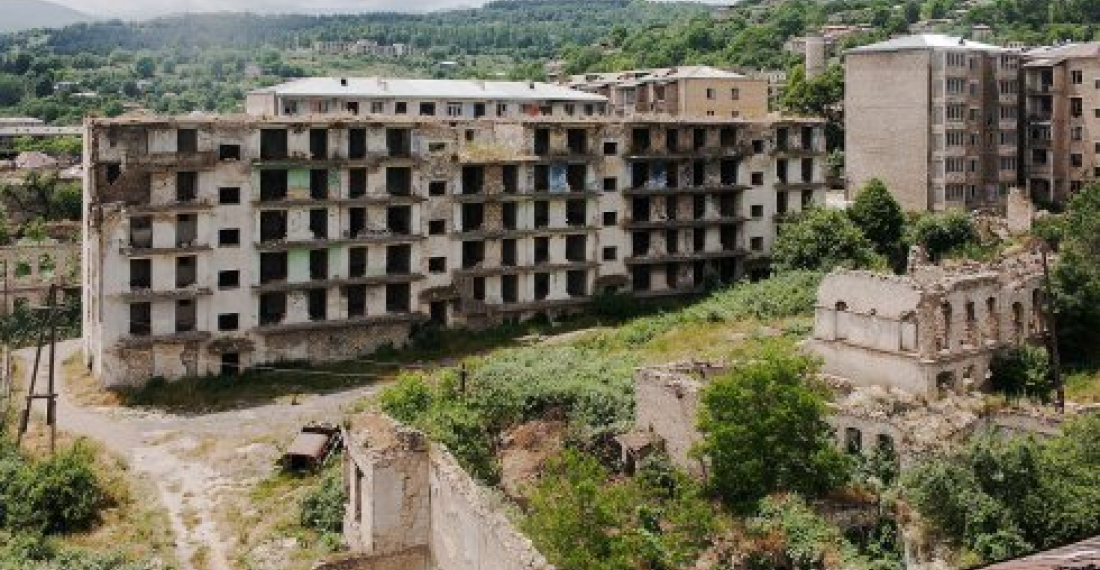The de facto president of the self-declared Nagorno-Karabakh Republic has again raised the issue of transferring key administraive buildings of the territory to the town of Shushi.
Speaking in the territory's parliament on Tuesday (11 August), Arayik Harutyunyan once again spoke about moving the parliament building to Shushi, but this time he also raised the possibility of moving the presidential residence to the town.
The issue is a contentious one, and crerated a sharp reaction in Azerbaijan when it was raised initially by Harutyunyan some months ago. Shushi (in Armenian) - or Shusha (in Azerbaijani) - is one of the largest and oldest settlements in Nagorno-Karabakh and was at the centre of the fighting that took place there in the early 1990s duirng which the large Azerbaijani population was expelled. A lot of the town has remained in ruins since then.
Observers of the Karabakh conflct see Harutyunyan's proposal as an attempt to re-affirm the permanency of the present status quo, and de facto Armenian control of the territory. The move, which can happen as early as 2022 is likely to be welcomed by Armenian nationalists, but will inevitably be strongly condemned in Azerbaijan where the displaced community of Azerbaijanis from Shusha continue to agitate for their return to the town.
source: commonspace.eu with agencies
photo: Buildings in many parts of Shushi/Shusha have remained in ruins since fighting there in 1989-94 (archive picture)







